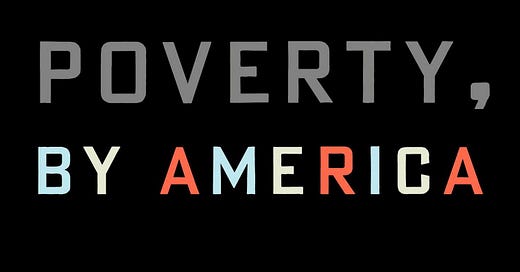Natalie, in Rachel Heng's The Great Reclamation, has an encounter with a laborer on her father's plantation. Natalie, the worker says, reminds him of his deceased daughter. At her inquiry about the medical care he had gotten for her, he laughed. It wouldn't have made a difference if he had been able to get her a doctor; hunger would have killed her. Natalie's appetite failed afterward. She wanted her father to explain why the laborers "could not get enough food for their sickly children to eat." It is a persistent question: why do we find poverty close to wealth? It is the question Matthew Desmond answers in Poverty, by America. He locates the causes of poverty in the rich.
His approach is to implicitly believe in human altruism. Reading the first part of this book, two things can be inferred. First, that altruism exists. Second, it has been blocked by myths and lies that locate the causes of poverty in the poor. These myths and lies are what Desmond takes apart one at a time. With research results and examples, Desmond exposes how the rich exploit the poor by limiting their choices and power in the labor market, the financial sector, and the housing sector; how the "subsidization of affluence" is preferred to the alleviation of poverty; how walls are built to protect and the prosperous and exclusive communities.
The last part of Poverty, by America is the practical part. It is a call to action: "invest in ending poverty", "empower the poor" and "tear down the walls".
Desmond audaciously asks what amount of money would be needed to eradicate hunger and homelessness. Roughly $177 billion. This is a utopian cause. Moses, the leader of an emancipated group and founder of one of the best welfare systems in the ancient world, would claim the Lord said: There will always be poor people in the land
But there is a philosophical side to this statement. In as much as inequality can be laid at the foot of brute luck - a concept partly defined as disadvantages and advantages beyond human influence or action - equality will always be a mirage. Looking back on his life as he prepares to tell his story, Demon Copperhead in Barbara Kingsolver's novel eloquently states the same: "First, I got myself born." Desmond doesn't make a case for the contribution of brute luck to poverty. However, by appealing to altruism he offers a mitigation to brute luck's contribution.





